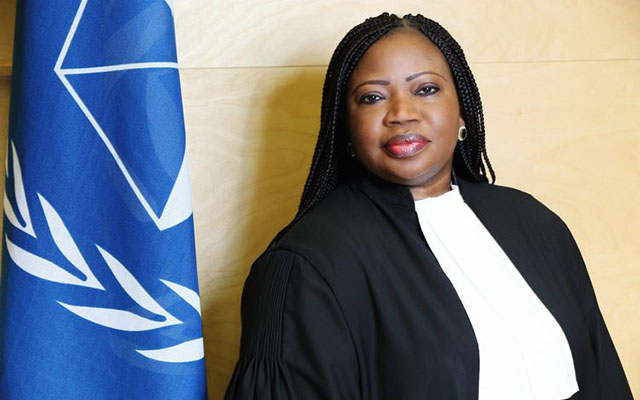Stinking scandal at the International Criminal Court

Sven Becker and Dietmar Pieper Correspondents
When Fatou Bensouda travelled to New York for the United Nations General Assembly in September, all appeared right with her world. And her Press release in conclusion was routine, stating that she had successfully strengthened support for the International Criminal Court (ICC) by talking to heads of state, cabinet ministers and high-ranking diplomats “to highlight the work of my office in investigating and prosecuting the most serious crimes”.
Just a few days later, she found herself surrounded by controversy. A series of articles in DER SPIEGEL and other European media partnered with European Investigative Collaborations (EIC) had shed light on some uncomfortable truths. Luis Moreno Ocampo, Bensouda’s predecessor in The Hague, had owned offshore companies in Caribbean tax havens, allowed himself to be exploited by the West in the 2011 Libyan conflict and, at the end of his term with the ICC, signed up to some highly dubious advisory roles with clients that included a Libyan oil billionaire who used to be close to the Gaddafi government. Finally, it was alleged that two members of Bensouda’s staff had been secretly working with Ocampo, one of them supplying him with insider information from the ICC.
Fatou Bensouda did her best to distance herself from the Ocampo affair and initiated an investigation into the activities of the two staff members of her team. Her office also released a statement claiming that she had avoided contact with Ocampo since assuming office.
“We would like to restate for the record the fact that the Office of the Prosecutor has not sought advice, communicated or collaborated with the former prosecutor,” the statement read. In subsequent days, she reiterated her statement. Workers in the halls of the ICC referred to the scandal as “Ocampogate” and it didn’t appear as though the current chief prosecutor was in any way implicated.
Her vehement disavowal, though, could now cause her problems. Internal documents leaked to French investigative platform Mediapart and examined by DER SPIEGEL paint a very different picture. They suggest that in fact Bensouda had a very close, trusting working relationship with her predecessor, writing to him on one occasion that he could contact her at “any time” and, on another, that she was “very grateful” for his help. During the ICC’s investigation into crimes against humanity and war crimes in Colombia, she even sent confidential documents to Ocampo, who was active in the country as a consultant.
A comparison of Bensouda’s official statements and her email exchanges with Ocampo lead to the inevitable conclusion that the ICC’s chief prosecutor has repeatedly not told the truth. Originally from Gambia, Bensouda was promoted from Ocampo’s deputy to his replacement as chief prosecutor in summer 2012 and took over a number of his investigations, including several that were highly fraught. In 2011, Ocampo had issued summons to Uhuru Kenyatta, now the President of Kenya, and other government officials in response to violence following alleged electoral manipulation in 2007.
Ocampo maintained his interest in many of these cases even after his term at the ICC had ended. And Bensouda was happy to brief him. In February 2013, a good six months after she had assumed office, he got in touch with her to ask: “Can we talk? I am worried about Kenya.” But instead of citing her duty of confidentiality, Bensouda wrote back: “Thanks Luis. I tried again to call you today.
“I would like to discuss with you before taking a decision.” Shortly thereafter, Bensouda announced that she would be dropping the case against one of Kenyatta’s associates. The report first appeared in the German publication Der Spiegel.











Comments